
Henry Graham Greene was an English writer and journalist regarded by many as one of the leading novelists of the 20th century.
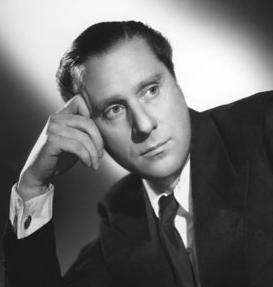
Sir Carol Reed was an English film director and producer, best known for Odd Man Out (1947), The Fallen Idol (1948), The Third Man (1949), and Oliver! (1968), for which he was awarded the Academy Award for Best Director.

Jan Decleir is a prolific Belgian movie and stage actor born in Niel, Antwerp.
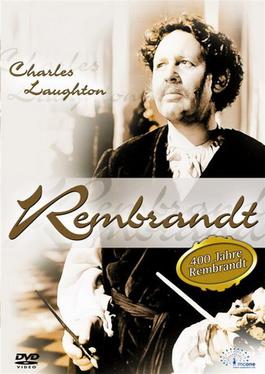
Rembrandt is a 1936 British biographical film made by London Film Productions of the life of 17th-century Dutch painter Rembrandt van Rijn. The film was produced and directed by Alexander Korda from a screenplay by June Head and Lajos Bíró based on a story by Carl Zuckmayer. The music score was by Geoffrey Toye and the cinematography by Georges Périnal.
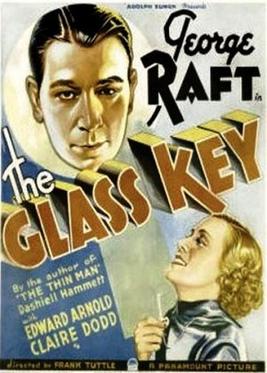
The Glass Key is a 1935 American crime drama film directed by Frank Tuttle starring George Raft, Edward Arnold, Claire Dodd, Guinn "Big Boy" Williams and Ray Milland. Ann Sheridan has a brief speaking role as Raft's character's nurse in their first film together. Produced and distributed by Paramount Pictures, it was based upon the 1931 suspense novel The Glass Key by Dashiell Hammett,

Anything Goes is a 1936 American musical film directed by Lewis Milestone and starring Bing Crosby, Ethel Merman, Charles Ruggles and Ida Lupino. It is based on the 1934 stage musical Anything Goes by Guy Bolton and P. G. Wodehouse, which included songs by Cole Porter.
The Song of Ceylon is a 1934 British documentary film directed by Basil Wright and produced by John Grierson for the Ceylon Tea Propaganda Board.

Moscow Nights is a 1935 British drama film directed by Anthony Asquith and starring Laurence Olivier, Penelope Dudley-Ward and Harry Baur. The screenplay concerns a wounded officer who falls in love with his nurse.
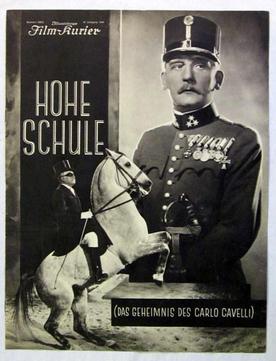
Hohe Schule, also known by its subtitle Das Geheimnis des Carlo Cavelli is a 1934 drama film directed by Erich Engel. The English-language version was released in the UK between 1935 and 1939, and in the US in 1939. An outstanding specimen of the genre of the Wiener Film, this story of love set in the Austrian officer classes was one of the most successful German-language film releases of 1935. The English-language version was released in the UK between 1935 and 1939, and in the US in 1939.
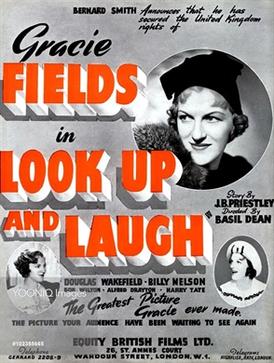
Look Up and Laugh is a 1935 British comedy film directed by Basil Dean and starring Gracie Fields, Alfred Drayton and Douglas Wakefield. The film is notable for featuring an appearance by Vivien Leigh in an early supporting role.

Me and Marlborough is a 1935 British comedy film, directed by Victor Saville, and starring Cicely Courtneidge, Tom Walls, Barry MacKay, Peter Gawthorne, Henry Oscar and Cecil Parker.
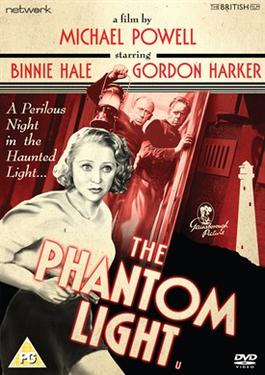
The Phantom Light is a 1935 British crime film, a low-budget "quota quickie" directed by Michael Powell and starring Binnie Hale, Gordon Harker, Donald Calthrop, Milton Rosmer and Ian Hunter. The screenplay concerns criminals who try to scare a new chief lighthouse keeper on the Welsh coast, in an attempt to distract him from their scheme.

Jack of All Trades is a 1936 British comedy film directed by Robert Stevenson and Jack Hulbert and starring Hulbert, Gina Malo and Robertson Hare. It is based on the 1934 play Youth at the Helm. The film was made at Islington Studios, with sets designed by Alex Vetchinsky.

It's a Battlefield is an early novel by Graham Greene, first published in 1934. Graham Greene later described it as his "first overtly political novel". Its theme, said Greene, is "the injustice of man's justice." Later in life, Greene classified his major books as "novels" and his lighter works as "entertainments"; he ranked It's a Battlefield as a novel and not a mere entertainment.

Jánošík is a 1935 Czechoslovak drama film directed by Martin Frič.

Arnold Marlé was a German actor who appeared largely in British films and television programmes.

Great God Gold is a 1935 film. It was Arthur Lubin's second film as director.

Second Bureau is a 1935 French spy romance film directed by Pierre Billon and starring Jean Murat, Véra Korène and Janine Crispin. It is based on the novel Second Bureau by Charles Robert-Dumas. The following year it was remade as a British film by Victor Hanbury. The book was one of a spy series Ceux du S. R. published in France by Librarie Arthème Fayard in 1934. The film's sets were designed by the art director Aimé Bazin. It was followed by a sequel Wolves Between Them in 1936.

Accent on Youth is a 1935 American comedy film directed by Wesley Ruggles and written by Herbert Fields and Claude Binyon based on the 1934 play of the same name written by Samson Raphaelson. The film stars Sylvia Sidney and Herbert Marshall and features Phillip Reed, Holmes Herbert, Catherine Doucet, Astrid Allwyn and Lon Chaney Jr. The film was released on August 23, 1935, by Paramount Pictures.
One Way Ticket is a 1935 American crime film directed by Herbert Biberman starring Lloyd Nolan, Peggy Conklin and Walter Connolly. The film is based on the 1934 novel One-Way Ticket by Ethel Turner.

















